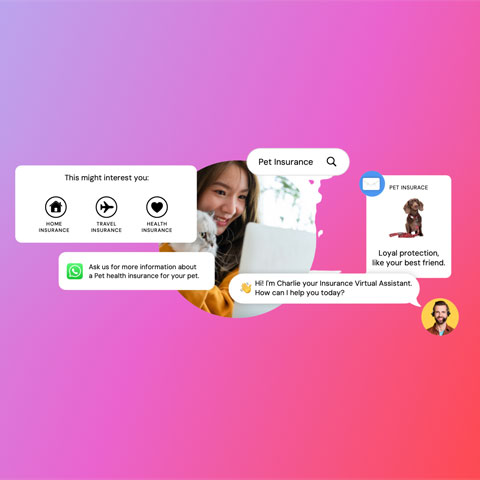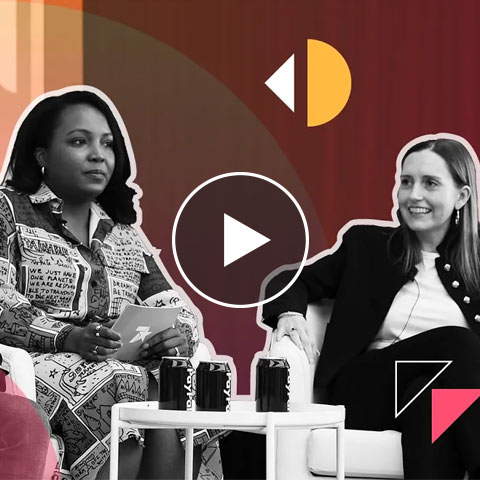Machine learning is much bigger than just Google


There are plenty of articles covering machine learning right now but most of them talk about how it will impact search engines and the way we optimise for them. Which is fine, except there is another side of the story: what machine learning will do for marketers.
It’s time to stop obsessing about Google’s algorithm and realise that machine learning is much bigger than Google. This technology is going to provide us with marketing tools like we’ve never had before – and knowing how to make the most of machine learning will be one of the most important marketing skills you can have.
The impact of machine learning on search engines
The goal with machine learning for Google and search engines in general is to better understand the the meaning behind each individual query (15% of which Google has never come across before).
RankBrain brought machine learning to Google’s core algorithm in 2015, essentially making it less reliant on a rigid formula of ranking factors – like links and keywords – for every query. RankBrain is capable of deciding which ranking factors are most important for individual queries and it’s going to get better at doing this by its own accord.
So, essentially, Google’s algorithm will be different for every query. Or, more accurately, it will adapt each time, based on the context of individual searches, and the ranking factors that determine your place in the SERPs will vary.
“Google now looks at hundreds of ranking factors. RankBrain uses machine learning to combine many factors into one, which means factors are weighted differently for each query. That means it’s very likely that even Google’s engineers don’t know the exact composition of their highly complex algorithm.” – Marcus Tober, founder of Searchmetrics
So what does this mean in terms of optimising for search in the age of machine learning? Well, essentially, there are two main areas we need to think about: technical SEO and content.
Technical SEO in the age of machine learning
For years, technical SEO meant optimising images, title tags and other HTML/XML-level tasks. The problem with this approach is you’re fixing mistakes that were made during the initial development stage of a website. As Google puts less emphasis on these factors and more on the contextual elements of each search, technical SEO needs to move out of HTML and into understanding how machine learning operates.
HTML-level optimisation should be taken care of in the development stage of a site and maintained by developers – that’s their job.
Technical SEOs, on the other hand, will be using machine learning to run more advanced diagnostic tests to spot severe issues like duplicate content and flag up causes of slow loading times, for example. By crunching multiple datasets, machine learning will enable SEOs to gain insights that would take years to acquire manually.
The key for SEOs/marketers will be collecting the right kind of data – ie: verified, targeted data on a large scale – to make their machine learning results reliable.
Content in the age of machine learning
As Google relies less on ranking factors like links and keywords, contextual ranking factors take the driving seat. RankBrain isn’t only getting better at understanding the meaning of queries but also the content it connects them to. So, in theory, the highest ranking piece of content should be the one that answers user queries most effectively.
The priority for SEOs now is understanding what users need along each stage of the consumer journey and creating influential content that not only answers their questions, but encourages them to take the next step. This is precisely what Google is trying to encourage with all its talk about micro-moments.
All the discussion on machine learning in the marketing industry seems to focus on Google’s algorithm but there’s little talk about how this will make it easier to meet user demands. It seems like a lot of marketers are more afraid of a smarter Google than excited by it. More to the point, if cracking Google’s code is still your priority as a marketer in 2017, there’s something wrong.
The impact of machine learning on marketers
Here at Vertical Leap, we’re already using machine learning for our customers’ search campaigns; monitoring budgets, pinpointing where time and money is best spent, and identifying threats and opportunities in their search campaigns. We’re doing this right now, discovering insights that we’d never be able to find on our own.
Over the next five years, software companies are going to unleash a new wave of machine learning tools that’ll change marketing processes as we know them.
Machine learning to predict human behaviour
The leading firms in machine learning are knocking on the door of predicting human behaviour in a scarily accurate way. Imagine marketing tools that can predict what users are going to do next before they even know it themselves. These platforms are already on the market and refining the way they interpret/predict human behaviour.
Personalised marketing is finally here
Personalised marketing became a buzzword way too early. Before the technology was even there to make it a reality we’d already moved on to other new marketing toys but machine learning finally makes personalisation manageable at scale.
Tools like Optimizely X use machine learning to recommend products and content to users based on their previous actions. While Monetate’s Intelligent Personalization Engine creates user profiles so you can deliver customised homepage messages to each individual user.
Suggestions and decision making
When most of our marketing decisions are based on data, what’s stopping an algorithm from doing this for us? Not a lot. If you can build it, it’ll run more tests, correlate more data points and define more conclusions than you could do in a lifetime. Google trusts RankBrain enough to take the helm with its search engine, Adobe Sensei can make design choices on our behalf and the leading names in conversion optimisation software are calling upon machine learning to take user testing to new heights.
Automation
Machine learning is essentially data-driven automation. It’s not doing anything we couldn’t do ourselves but it is capable of doing certain things much faster and more consistently than us puny humans. In a data-driven world, this speed is a huge advantage when it comes to spotting new opportunities and optimising our marketing efforts.
It’s also a real workhorse. Machine learning doesn’t get tired, won’t complain about doing overtime and never comes into work after a few too drinks many. It never makes a fool of itself at the Christmas party either. A true professional.
What machine learning can’t do is make any kind of creative decisions or approach problems with lateral thinking. Which is fine, because while its busy handling the tasks that can be automated, it’s freeing up more time for marketers to focus on the creative and strategic side of things.
Machine learning is still in its infancy but it’s spotting opportunities and flagging up risks that humans would never been able to see. The challenge we have at this stage is collecting enough quality data to feed machine learning so that its output is reliable enough to be trusted.
Want more like this?
Want more like this?
Insight delivered to your inbox
Keep up to date with our free email. Hand picked whitepapers and posts from our blog, as well as exclusive videos and webinar invitations keep our Users one step ahead.
By clicking 'SIGN UP', you agree to our Terms of Use and Privacy Policy


By clicking 'SIGN UP', you agree to our Terms of Use and Privacy Policy
Other content you may be interested in
Categories
Categories
Categories

Want more like this?


Want more like this?
Insight delivered to your inbox
Keep up to date with our free email. Hand picked whitepapers and posts from our blog, as well as exclusive videos and webinar invitations keep our Users one step ahead.
By clicking 'SIGN UP', you agree to our Terms of Use and Privacy Policy









